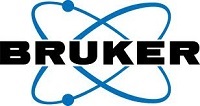For many years, the prostate-specific antigen (PSA) test has been used to screen for prostate cancer. Although it promotes early detection of prostate cancer and has boosted survival rates, it has serious constraints. The test relies on establishing blood levels of PSA that are raised in prostate cancer patients.
Since elevations in blood PSA can occur in a myriad of ways, the test is consequently non-specific for identifying prostate cancer and, therefore, is not infallible. Other, less severe prostate conditions, such as benign prostatic hyperplasia (BPH), prostatitis or prostate injury, as well as heavy exercise and ejaculation, can lead to the presentation of increased PSA levels.
Therefore, a risk of false positives leads to patient anxiety and the unnecessary potential for overtreatment. There is also the possibility for false negatives as in 1 of 7 men with normal PSA levels diagnosed with prostate cancer. Furthermore, the PSA test does not show whether a patient has a high-risk aggressive tumor or a low-risk slow-growing tumor.
As such, cancer treatment may be given to a patient for a tumor that may not cause symptoms during his lifetime. As a result, there is an urgent, unfulfilled requirement for an effective, high specificity, non-invasive biomarker for the early detection of prostate cancer.
Prostate cancer cells experience profound signaling and metabolic reprogramming that alters their metabolic profile considerably. Clarification of the exact nature of these changes would enable the identification of a more distinct biomarker for prostate cancer.
Metabolomic analysis is a powerful tool for such research as it details each of the tiny molecules metabolites present in a sample. Nuclear magnetic resonance (NMR) spectroscopy metabolomic analysis has recently been employed to evaluate the molecular basis of prostate cancer.
Urine samples taken from over 650 men with prostate cancer or BPH were assayed by 1H NMR to determine metabolic fluctuations specific to prostate cancer. NMR spectra were acquired with the Bruker Avance IVDr spectrometer, i.e., Bruker Avance III HD 600MHz.
Preparation of the samples was carried out in line with standard procedures and measured in full automation with Bruker’s bodyfluid NMR methods package B.I.Methods 1.0.
Three standards experiments have been measured for each sample, 1D 1H-NOESY, 2D 1H-JRES and 2D 1H-TOCSY. This is the first extensive metabolomic study of prostate cancer performed on such a large patient sample. It showed considerable changes in urine metabolite profiles that distinguished prostate cancer from BPH.
The urine samples revealed that the presence of metabolites from glycolysis and the urea cycle pathways were significantly lower in concentration from individuals with prostate cancer than those with BPH.
This observation confirms the assumption that prostate cancer cells are known to significantly reduce the production of metabolic waste products in order to optimize their usage in anabolic processes to facilitate increased cell growth.
The research also exhibited for the first time that urine levels of metabolites that directly or indirectly support cancer cell growth, such as acetate, glucose, glycine, lactate, lipids and oxaloacetate, were also considerably lower in prostate cancer.
About Bruker BioSpin Group
The Bruker BioSpin Group designs, manufactures, and distributes advanced scientific instruments based on magnetic resonance and preclinical imaging technologies. These include our industry-leading NMR and EPR spectrometers, as well as imaging systems utilizing MRI, PET, SPECT, CT, Optical and MPI modalities. The Group also offers integrated software solutions and automation tools to support digital transformation across research and quality control environments.
Bruker BioSpin’s customers in academic, government, industrial, and pharmaceutical sectors rely on these technologies to gain detailed insights into molecular structure, dynamics, and interactions. Our solutions play a key role in structural biology, drug discovery, disease research, metabolomics, and advanced materials analysis. Recent investments in lab automation, optical imaging, and contract research services further strengthen our ability to support evolving customer needs and enable scientific innovation.
Sponsored Content Policy: News-Medical.net publishes articles and related content that may be derived from sources where we have existing commercial relationships, provided such content adds value to the core editorial ethos of News-Medical.Net which is to educate and inform site visitors interested in medical research, science, medical devices and treatments.